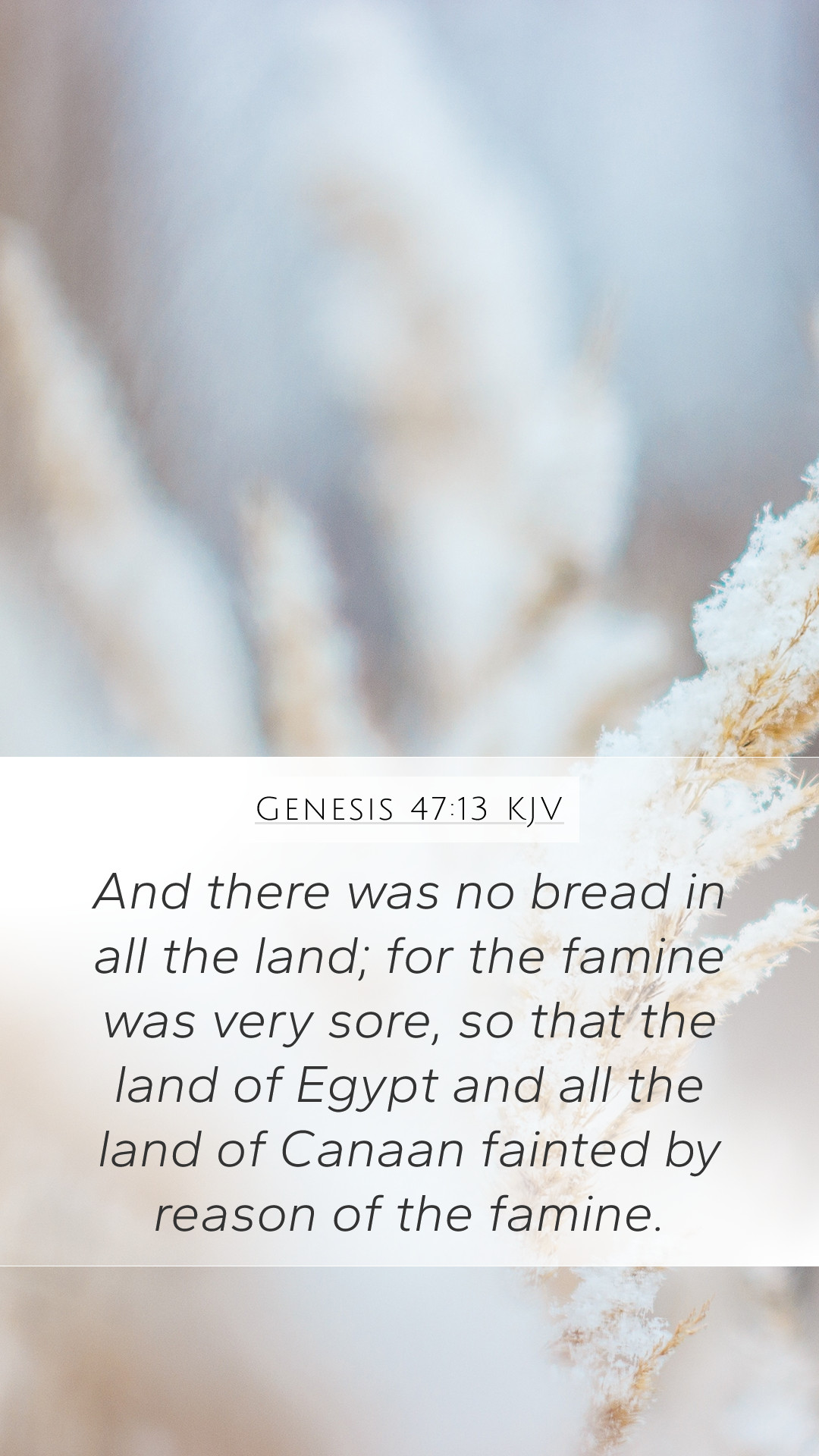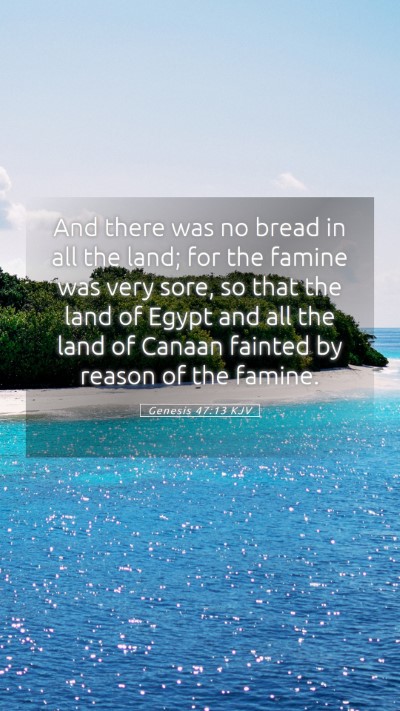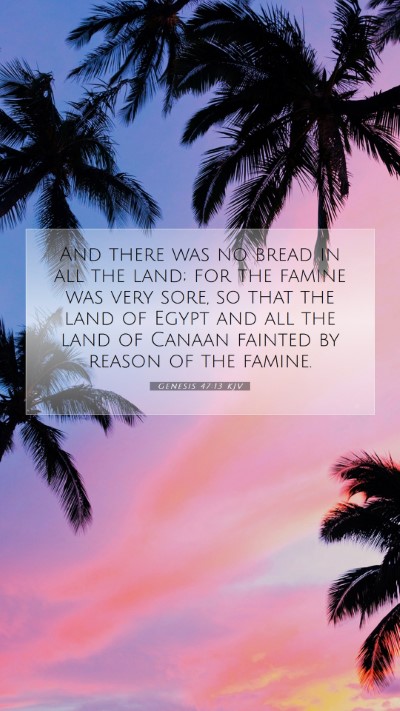Understanding Genesis 47:13
Genesis 47:13 states: "And there was no bread in all the land; for the famine was very sore, so that the land of Egypt and all the land of Canaan fainted by reason of the famine." This verse touches on a critical moment in biblical history, highlighting the severe famine that affected Egypt and Canaan and setting the stage for significant events in the life of Joseph and his family.
Bible Verse Meaning and Commentary
To delve deeper into the meaning of this Bible verse, we can draw insights from public domain commentaries by Matthew Henry, Albert Barnes, and Adam Clarke.
Contextual Overview
Here, the context is vital. Following Joseph's rise to power in Egypt after interpreting Pharaoh's dreams, he prepares for the famine by storing grain. The verse reflects the culmination of this preparation, indicating that the famine extended beyond Egypt into Canaan, affecting many.
Matthew Henry's Commentary
Matthew Henry highlights the profound physical and spiritual implications of the famine. He notes that this event serves as a serious reminder of human dependence on God for sustenance. The famine, alongside the fact that people “fainted,” underscores the desperation of the situation and the need for divine intervention.
Albert Barnes' Interpretation
Albert Barnes discusses the historical significance of the famine. He explains that this scarcity not only serves as a backdrop to Joseph's life but also demonstrates God's providential care. Despite the severity, it leads to the preservation of Joseph’s family, showcasing God's overarching plan in the midst of dire circumstances.
Adam Clarke's Exegesis
Adam Clarke provides an extensive analysis of the implications of the word "fainted." He links it to a deeper theological reflection on human fragility in the face of natural disasters. Clarke emphasizes that this passage illustrates the reality of suffering and the hope that comes through divine provision, seen in Joseph's actions during the famine.
Key Insights from the Commentary
- Human Dependence: The verse emphasizes the need for reliance on God’s provision in times of scarcity.
- Divine Providence: Even amidst adversity, God ensures the survival of His people through strategic arrangements, as demonstrated by Joseph.
- Theological Reflection: The famine serves as a metaphor for spiritual hunger and the importance of seeking sustenance in God.
- Historical Significance: This situation is pivotal in the narrative of the Israelites, illustrating their hardships and ultimate reliance on Egyptian provisions.
Application and Lessons
This passage offers several practical insights for Bible study groups and those seeking to apply its lessons to daily life.
- Recognizing Hardships: Just as Egypt faced famine, we may encounter dire situations, prompting us to seek God more fervently.
- God's Care in Crisis: The assurance that God provides even in our darkest hours is a comforting truth for all believers.
- Preparation and Action: Joseph’s foresight encourages proactive planning in light of anticipated challenges, teaching us the value of wisdom in our decisions.
Related Bible Cross References
- Genesis 41:30-31: The prophecy of the famine.
- Genesis 45:5-7: Joseph reveals his identity and speaks of God's plan during the famine.
- Psalm 33:18-19: God's provision and care in times of trouble.
Conclusion
In summary, Genesis 47:13 serves as a poignant reminder of the challenges faced by God’s people and His enduring provision throughout history. By engaging with these Bible verse interpretations, we gain deeper insight into not just the narrative but also our response to similar circumstances today.


